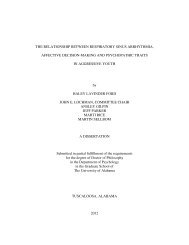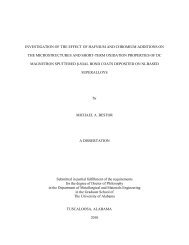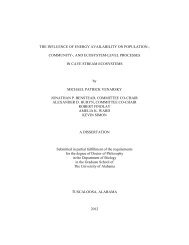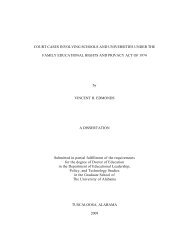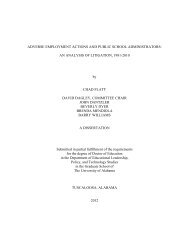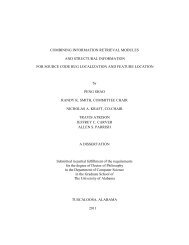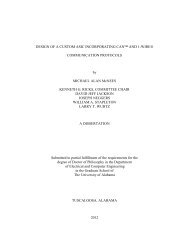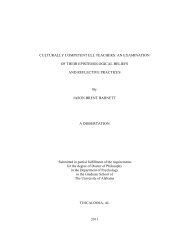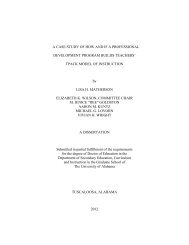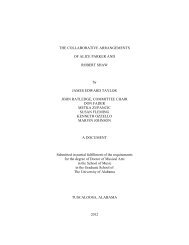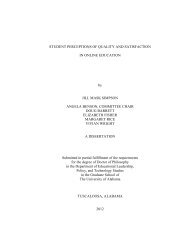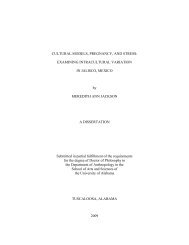Copyright Malvin Porter, Jr. 2010 - acumen - The University of ...
Copyright Malvin Porter, Jr. 2010 - acumen - The University of ...
Copyright Malvin Porter, Jr. 2010 - acumen - The University of ...
You also want an ePaper? Increase the reach of your titles
YUMPU automatically turns print PDFs into web optimized ePapers that Google loves.
someone cares (Naylor & Cowie, 1999). <strong>The</strong>se findings suggest the importance <strong>of</strong> understanding<br />
the role <strong>of</strong> informal forms <strong>of</strong> peer social support in buffering the negative consequences<br />
associated with bullying.<br />
Teacher Social Support<br />
Research finds that teachers play an important role in preventing and modeling<br />
appropriate behavior in dealing with victimization (James et al., 2008). One study found that<br />
nonbully/nonvictims are nearly twice as likely as victims <strong>of</strong> bullying to report that there is a<br />
teacher with whom they can talk about their problems (Furlong & Chung, 1995). Thus, teacher<br />
social support is important for maintaining optimal daily functioning for victims <strong>of</strong> bullying and<br />
for decreasing the stress <strong>of</strong> being victimized by bullies (Cobb, 1976; S. Cohen & Wills, 1985).<br />
Social support from teachers is a valuable resource that contributes to students’ academic<br />
and social success by promoting academic achievement, school engagement, and well-being in<br />
the classroom (Brewster & Bowen, 2004; Chen, 2005; Vedder, Boekaerts, & Seegers, 2005).<br />
Emotional support from teachers, in particular, has been linked both to students’ academic<br />
competence and school adjustment (Malecki & Demaray, 2003; Smokowski, Reynolds, &<br />
Bezruczko, 1999). Teacher social support contributes to a child’s mental health. Studies show<br />
that teacher social support is correlated negatively with depression, and positively with self-<br />
esteem and social skills (Colarossi & Eccles, 2003; Malecki & Demaray, 2003). When children<br />
perceive that their teacher is fair and cares about them, they are less likely to engage in health<br />
compromising behaviors such as alcohol, tobacco, and other drug use; violence; sexual activity;<br />
and suicide (McNeely & Falci, 2004).<br />
30



